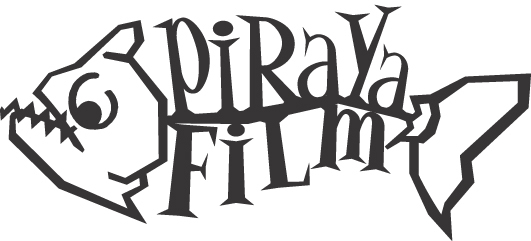
Illustration: Sueddeutsche Zeitung
by Andrei Nekrasov
Original article in German: Der Cellist und der tote Anwalt, by Petra Blum, Frederik Obermaier and Paul Radu, Sueddeutsche Zeitung, 27 April 2016
The English language version of "Der Cellist und der tote Anwalt":
The Magnitsky Case, by Petra Blum, Frederik Obermaier and Paul Radu Sueddeutsche Zeitung", 27 April 2016
The English language version of "Der Cellist und der tote Anwalt":
The Magnitsky Case, by Petra Blum, Frederik Obermaier and Paul Radu Sueddeutsche Zeitung", 27 April 2016
"Sergei Magnitsky died on Nov. 16, 2009 in a solitary confinement cell of the infamous Matrosskaya Tishina Prison in Moscow."
Magnitsky died in the hospital of the Matrosskaya Tishina prison in Moscow.
Death report: http://russian-untouchables.com/rus/docs/D385.pdf
Death report: http://russian-untouchables.com/rus/docs/D385.pdf
"Magnitsky had been a lawyer and auditor..." ;
"The dead lawyer" (in the title of the original article)
"The dead lawyer" (in the title of the original article)
Magnitsky was not a lawyer. He never went to a law school. Magnitsky graduated from the Plekhanov Academy for Finances and Economics, specialising in finance and credit:
https://web.archive.org/web/20130302135204/http://politrash.ru/wp/wp-content/uploads/2013/02/magn1.jpg
Magnitsky obtained a certificate to practice accounting from the Russian Finance Ministry:
https://web.archive.org/web/20130302135022/http://politrash.ru/wp/wp-content/uploads/2013/02/magn2.jpg
Magnitsky described himself as accountant (on page 1):
http://followmydata.net/SMRULE/D1173.pdf
In order to work as and be called a lawyer in Russia one needs to graduate from a law school and become a member of the lawyers' association which issues a corresponding certificate. None of that applied to Magnitsky.
Bill Browder admitted under oath in New York that Magitsky had not had a law degree (page 25-26):
https://100r.org/media/2017/10/Browder-Deposition-April-15-2015.pdf#page=25
Q. And he had a law degree in Russia?
A. I'm not aware that he did.
Q. I see. And -- and he had -- he went to law school?
A. No.
In Russia one can represent a company in commercial arbitration cases without being a lawyer, Magnitsky did represent Browder's companies in such a case in 2003. That does not make him a lawyer.
https://web.archive.org/web/20130302135204/http://politrash.ru/wp/wp-content/uploads/2013/02/magn1.jpg
Magnitsky obtained a certificate to practice accounting from the Russian Finance Ministry:
https://web.archive.org/web/20130302135022/http://politrash.ru/wp/wp-content/uploads/2013/02/magn2.jpg
Magnitsky described himself as accountant (on page 1):
http://followmydata.net/SMRULE/D1173.pdf
In order to work as and be called a lawyer in Russia one needs to graduate from a law school and become a member of the lawyers' association which issues a corresponding certificate. None of that applied to Magnitsky.
Bill Browder admitted under oath in New York that Magitsky had not had a law degree (page 25-26):
https://100r.org/media/2017/10/Browder-Deposition-April-15-2015.pdf#page=25
Q. And he had a law degree in Russia?
A. I'm not aware that he did.
Q. I see. And -- and he had -- he went to law school?
A. No.
In Russia one can represent a company in commercial arbitration cases without being a lawyer, Magnitsky did represent Browder's companies in such a case in 2003. That does not make him a lawyer.
"Magnitsky… had uncovered an alleged case of fraud amounting to several million U.S. dollars"
No one (neither Browder nor the Russian authorities) deny that the fraud, an illegal rebate of 230 million dollars previously paid in taxes, had actually taken place. So it is not clear what is meant by "alleged" here.
However, Magnitsky did not uncover that, or any other, fraud. I demonstrate that in detail in "The Magnitsky Act - Behind the Scenes", as well as in the article "Bill Browder and his story of the alleged Whistleblower Magnitsky." http://magnitskyact.com/telepolis
However, Magnitsky did not uncover that, or any other, fraud. I demonstrate that in detail in "The Magnitsky Act - Behind the Scenes", as well as in the article "Bill Browder and his story of the alleged Whistleblower Magnitsky." http://magnitskyact.com/telepolis
According to his research, Russian civil servants had, in conjunction with criminals, managed to steal $230 million from the treasury and transfer it abroad through a very complex web of shell companies.
There is no evidence of any such research by Magnitsky. There is no proof Magnitsky investigated the theft of 230 million dollars from the treasury. This cornerstone of Browder's story - that Magnitsky uncovered the theft - is disproved in "The Magnitsky Act - Behind the Scenes". I also deal with this in the article http://magnitskyact.com/telepolis
In Russia, possession of these documents gives you the same rights as those of the business owner, even if it is not your company.
This statement is completely wrong and no evidence to support it was presented in the article.
I explain that in detail in "The Magnitsky Act - Behind the Scenes", as well as in the presentation at OffshoreAlert Conference in London:
http://magnitskyact.com/offshorealertlondon
I explain that in detail in "The Magnitsky Act - Behind the Scenes", as well as in the presentation at OffshoreAlert Conference in London:
http://magnitskyact.com/offshorealertlondon
The documents were used to re-register the companies shortly after the raid on alleged accomplices of the officials involved.
This is a misleading statement. The companies - Makhaon, Rilend und Parfenion - were sold on the 31.07.2007: https://docdro.id/mXCAhfp
The formality of re-registration of the companies took place after their sale.
It is not possible to re-register companies just by using the documents impounded during the raid. The re-registering is largely a formality that follows a sales and purchase agreement. Only the owner of a company can transfer ownership to others, either personally, or empowering someone to do it by a power of attorney.
There is no evidence Browder lost control over the above named companies.
I explain that in detail in the presentation at OffshoreAlert Conference in London: http://magnitskyact.com/offshorealertlondon
The formality of re-registration of the companies took place after their sale.
It is not possible to re-register companies just by using the documents impounded during the raid. The re-registering is largely a formality that follows a sales and purchase agreement. Only the owner of a company can transfer ownership to others, either personally, or empowering someone to do it by a power of attorney.
There is no evidence Browder lost control over the above named companies.
I explain that in detail in the presentation at OffshoreAlert Conference in London: http://magnitskyact.com/offshorealertlondon
Other presumed accomplices subsequently sued the companies, claiming that they had been a victim of a fraud. They accused Hermitage Capital of having cheated, in 2006, other companies - which no one had ever heard of - of $1 billion. And they won the court case. Hermitage capital had made a profit of $1 billion that year, which was retroactively subtracted from their balance sheet.
These statements are misleading. After the sale of the companies (Makhaon, Rilend and Parfenion) in July 2007 (and before they were re-registered in September 2007) a number of claims against the companies were filed in arbitration courts. The lawsuits were civil not criminal. They were not about accusation and fraud, they were about debt and money claims.
On 9 April 2008 Rimma Starova (who became a figurehead director of Makhaon, Rilend and Parfenion, after they were used for the illegal tax refund of 230 million) filed a criminal complaint, in which she accused the old (original) owners of the companies of fraudulently imitating the sale and subsequent civil lawsuits (money claims): https://drive.google.com/file/d/0B6nugCIZ1LPPZWZlYnBubTlhYmc/view
As a result, criminal proceedings were launched which became the criminal case of the illegal 230 million dollars tax refund.
There is more evidence that Browder's claims that he had lost control of Makhaon, Rilend und Parfenion are false. More in: Nekrasov, Andrei, Delo Magnitskogo (Дело Магнитского), Eksmo Publishers, 2017, p. 81-91.
On 9 April 2008 Rimma Starova (who became a figurehead director of Makhaon, Rilend and Parfenion, after they were used for the illegal tax refund of 230 million) filed a criminal complaint, in which she accused the old (original) owners of the companies of fraudulently imitating the sale and subsequent civil lawsuits (money claims): https://drive.google.com/file/d/0B6nugCIZ1LPPZWZlYnBubTlhYmc/view
As a result, criminal proceedings were launched which became the criminal case of the illegal 230 million dollars tax refund.
There is more evidence that Browder's claims that he had lost control of Makhaon, Rilend und Parfenion are false. More in: Nekrasov, Andrei, Delo Magnitskogo (Дело Магнитского), Eksmo Publishers, 2017, p. 81-91.
Magnitsky, who had uncovered the tax refund scheme in the first place, was arrested just a few days after having sought charges in this case. Interestingly enough, the policemen who had been accused of the tax fraud by Magnitsky were the same to arrest him. The authorities accused Magnitsky of having orchestrated the supposed tax fraud himself.
Magnitsky did not uncover the tax refund scheme, did not seek any charges and did not accuse policemen of the tax fraud before his arrest. Magnitsky was arrested in connection with the tax evasion case in Kalmykia in 2001.
From that point, the $230 million was then apparently transferred through a network of shell companies with seats in Cyprus, Panama Moldova and the British Virgin Islands, until its trace was lost. According to research by the journalist network Organized Crime and Corruption Reporting Project (OCCRP), several million dollars were transferred to a company called Delco Networks, based in the British Virgin Islands. A company that would apparently end up doing business with Roldugin's shell company.
The Sueddeutsche Zeitung reports here that the 230 Million was "apparently" transferred through a network of shell companies until its trace was lost. In the same paragraph it is stated that some several million dollars were transferred to a company called Delco Networks. Why are these "several million" mentioned here if no evidence is presented that this money comes from the stolen 230 million?
Statements in this Sueddeutsche Zeitung article produce the impression that money from the Magnitsky affair ended with Roldugin. That, at a closer look at the language of the article, is not directly claimed. Bill Browder claims, at Congres, for example, that he and his colleagues found money from the affair in Roldugin's possession. Browder also claims that OCCRP found that money.
Formally, Sueddeutsche Zeitung cannot be held responsible for Browder's statements. However, in "The Magnitsky Act - Behind the Scenes" we show that OCCRP (who are Sueddeutsche's collaborators), and the U.S. government, have worked closely with Bill Browder. The allegedly successful tracing of the money flows from the Magnitsky affair was - as it turns out - is a fabrication. The "Investigation" by OCCRP, that is fully founded on Browder's Magnitsky narrative, is full of gaps and unfounded assumptions.
The origin of the funds and their reaching end-user (e.g. Delco receiving money from Parfenion and / or Rilend and / or Makhaon) were alleged but not proven. OCCRP's narrative which Sueddeutsche Zeitung essentially reprints is neither independent nor soundly substantiated and appears to have a specific political agenda.
Statements in this Sueddeutsche Zeitung article produce the impression that money from the Magnitsky affair ended with Roldugin. That, at a closer look at the language of the article, is not directly claimed. Bill Browder claims, at Congres, for example, that he and his colleagues found money from the affair in Roldugin's possession. Browder also claims that OCCRP found that money.
Formally, Sueddeutsche Zeitung cannot be held responsible for Browder's statements. However, in "The Magnitsky Act - Behind the Scenes" we show that OCCRP (who are Sueddeutsche's collaborators), and the U.S. government, have worked closely with Bill Browder. The allegedly successful tracing of the money flows from the Magnitsky affair was - as it turns out - is a fabrication. The "Investigation" by OCCRP, that is fully founded on Browder's Magnitsky narrative, is full of gaps and unfounded assumptions.
The origin of the funds and their reaching end-user (e.g. Delco receiving money from Parfenion and / or Rilend and / or Makhaon) were alleged but not proven. OCCRP's narrative which Sueddeutsche Zeitung essentially reprints is neither independent nor soundly substantiated and appears to have a specific political agenda.

“
Q.: What steps did you take in finding Mr. Browder to be credible?
A.: Well, we reviewed his documentation, we reviewed some of his statements and verified some of his statements via the internet.
Q.: What did he tell you?
A.: Well, he told us the story of Sergei Magnitsky.
Q.: What public source documents did he refer you to?
A.: He referred me on his website, he referred me to a Russian language newspaper.
Q.: What else?
A.: And the documents that he provided.
Q.: What documents did he provide?
A.: Copies of the bank records, copies of wire transactions
Q.: Did you get in touch with the banks to see if they were accurate?
A.: No, I did not.
Q.: And you obtained flow charts; is that correct?
A.: That's correct.
Q.: And those were also from Hermitage that you obtained them?
A.: Correct.
Q.: So every transfer here is based on copies that are not authenticated, of records that are incomplete, based on an accounting assumption. Is that right?
A.: That would be correct.
A.: Well, we reviewed his documentation, we reviewed some of his statements and verified some of his statements via the internet.
Q.: What did he tell you?
A.: Well, he told us the story of Sergei Magnitsky.
Q.: What public source documents did he refer you to?
A.: He referred me on his website, he referred me to a Russian language newspaper.
Q.: What else?
A.: And the documents that he provided.
Q.: What documents did he provide?
A.: Copies of the bank records, copies of wire transactions
Q.: Did you get in touch with the banks to see if they were accurate?
A.: No, I did not.
Q.: And you obtained flow charts; is that correct?
A.: That's correct.
Q.: And those were also from Hermitage that you obtained them?
A.: Correct.
Q.: So every transfer here is based on copies that are not authenticated, of records that are incomplete, based on an accounting assumption. Is that right?
A.: That would be correct.
"The Magnitsky Act - Behind the Scenes", is an independent investigative documentary that deals with the Browder/Magntisky case and the topics discussed in the SZ article.
Please visit: www.magnitskyact.com
For more information please contact the film's producer: Torstein Grude, Piraya Film AS, Kvitsøygaten 25, 4014 Stavanger, Norway, or mailto torstein@piraya.no.
Please visit: www.magnitskyact.com
For more information please contact the film's producer: Torstein Grude, Piraya Film AS, Kvitsøygaten 25, 4014 Stavanger, Norway, or mailto torstein@piraya.no.
© All Right Reserved. Piraya Film AS
